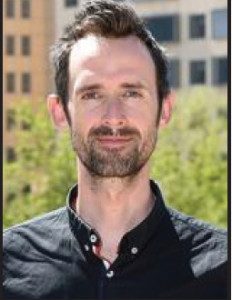COSMIC-Young Scientist Award for Contribution in the field of
“Information Technology (IT)”
Awarded on 22nd Jan 2016
at ACSECT 2016 – Bangkok, Thailand

Copyright
Qode Interactive 2016


COSMIC-Young Scientist Award for Contribution in the field of
“Information Technology (IT)”
Awarded on 22nd Jan 2016
at ACSECT 2016 – Bangkok, Thailand
Dr. Zoltan Horvath
Researcher, Professor Assistant at University of Pecs, Faculty of Sciences, Pecs, Hungary Visitor Professor at Kasetsart University, Bangkok, Thailand
In the last few years my main topic was the smartphone sensors. How can we use this at the indoor navigation and the indoor positioning? How accuracy are this sensors? How big are the error factors, etc.? Our researches proven that the sensors are not enough alone the solution is one hybrid technologies where more sensors work together. The other important question how can we reduce the errors and the wrong data? The most effective solution if we use different algorithms at the data analysis. We can separate the reflectance signal from the original signal with this object we can reduce the error from 62% to 12%. But this is high of sort.
In our second bigger topic we investigated the battery drain at the smartphones. How can we extend the battery lifetime if is this possible. Our results in this topic show that the short lifetime coming from the Users habits. This mean the wrong user habits as that lots of user waiting with the recharge till the last moment when the battery level is under 5% or lots of users leave their mobile on the recharger when the battery is full. But the biggest problem that lots of users don’t know how applications and services are running in the background. Otherwise we must talking about the algorithm again. The basic algorithms are not optimized and use too much energy. The best example on this problem the laptops battery lifetime. If we use different browser which use different algorithm then we can show that some browser can working longer time on the laptop. If we can reduce the algorithm or we can optimize the user habits and the algorithm then we can extend the battery lifetime with 35-45%.
Our topics are just subtopics in our main project when the aim that we develop on UAV (quadcopter) which can working in the office building alone and safety. We would like to work here with the smartphone sensors and we would like use our battery longer time because we can extend the UAV range.
Horvath has authored or co-authored full papers, 30 International Journal, 18 International Conferences, 8 National Conferences. He is editor at the Journal of Communications and Information Sciences and at the Journal of Computer Engineering (COES&RJ-JCE) from 2013.
He has supervised 32 Bachelor of Engineering thesis and 2 Masters.